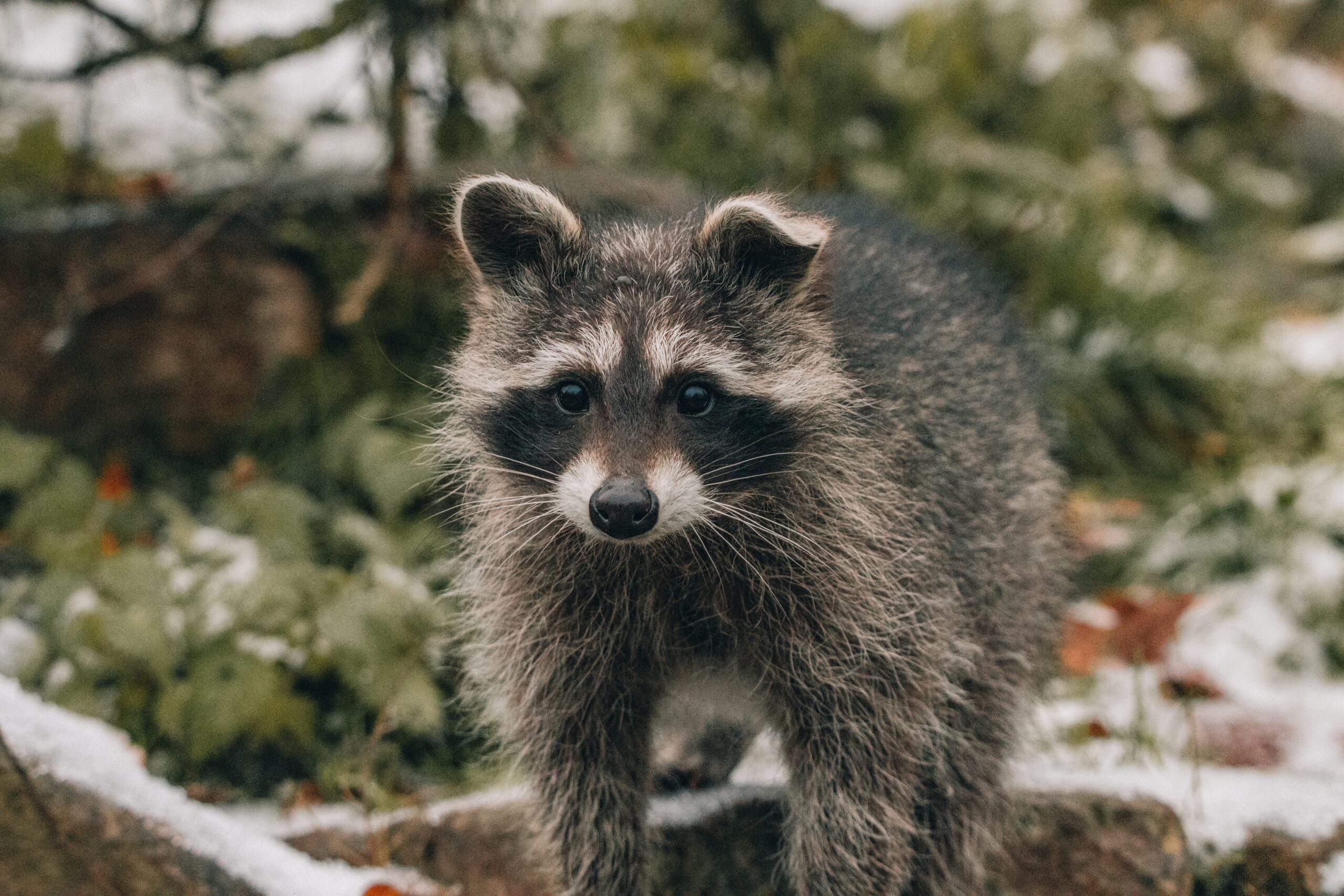


Raccoons are a common pest in Southern California, particularly in urban areas. They’re drawn to food scraps, pet food, plants, and garbage. In fact, you may have even caught a raccoon making a mess of your trash can in the past. Not only is the mess a nuisance, but raccoons can carry diseases such as rabies. They can also get inside your home, nesting in your attic. It’s important to deal with raccoons promptly so they don’t become an issue.
Dealing with raccoons can be tricky, and requires a trapping license from CDFW. It’s important to get help from experts. Rudy’s Termite & Pest Control knows how to deal with raccoons in the Coachella Valley and is fully licensed by CDFW – give us a call today!
Raccoons feature a distinctive “eyemask”-style marking around their eyes, a bushy tail with black rings, grey to reddish-brown fur, and front paws that have five toes. Raccoon paws are not unlike human hands, and can pull, grab, and hold things much like we can.
Raccoons are nocturnal and also quite vocal, with chirps, yelps, screeches, grunts, growls, and even whistles.
Raccoons typically live near water in wooded areas. However, they have also become a pest in urban areas, drawn to the food thrown away by humans. Raccoon dens can be found in trees, caves, barns, and sewers. Raccoons can also make their dens inside your home or business.
Raccoons are nocturnal and can climb easily. They are most often seen by humans in the evening, as they climb roofs and walls in search of food.
Raccoon mating season takes place between January and March, and a raccoon litter contains between four to six babies, called kits. At approximately four to six weeks old, raccoon kits can stand on their own, and are fully weaned at about 70 days old.
A young raccoon’s mother teaches them how to climb trees and hunt for food, which a kit can begin to do at about nine to twelve weeks after birth. Racoon kits stay with their mother for up to a year. Raccoon females reach sexual maturity at approximately one year, and males at two years.
Raccoons can live for up to 16 years, but typically do not live longer than two years in the wild due to predators and malnutrition.
Rudy’s Termite & Pest Control are licensed Coachella Valley raccoon control experts. Contact us today and let us solve the issue effectively.
You may notice small, hand-like paw prints in soil or mud near your home, or overturned garbage cans. Unfortunately, raccoons are clever and can easily open many trash cans. To help keep raccoons from your property, you can try securing your trash can lid with bungee cord and ensure that tempting food and water sources aren’t left out at night.
Raccoons remember when they’ve found a reliable food source and can be aggressive fighters if they feel threatened, so it’s important to ensure a raccoon infestation is prevented or dealt with right away. Mother raccoons protecting their young can also become aggressive.
Raccoons leave behind communal waste areas, called “latrines.” It’s important to stay far away from raccoon droppings, as they carry very serious diseases and parasites. Raccoons can also carry diseases such as rabies, roundworm, and leptospirosis.
The fleas and ticks raccoons can carry may also get into your home. In addition, raccoon droppings can build up in and around your property in attics, chimneys, and vents.
If you need help getting rid of raccoons on your Coachella Valley property, call Rudy’s Termite & Pest Control today!
"*" indicates required fields